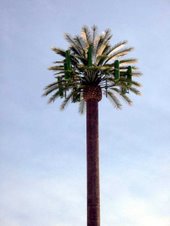It seems as if every week another new application surfaces for microcells--those small wireless cell sites you might see on light poles or traffic lights around your city.
How about marathons?
Thanks to the use of radio-frequency chips (or RFIDs), fans supporting their spouses or loved ones in 5Ks or marathons can now receive up-to-the-minute text messages and emails on their cell phones, while they wait anxiously on the sidelines, or pace in the comfort of their living rooms.
The hosts of the San Diego Marathon began rolling out pressure-sensitive mats at six locations along their 26.2-mile route in 2005. Then, they would give runners RFID chips which attach to their shoes. As the runners pass over the mats, a transmitter inside the chip sends a unique ID code to the nearest microcell antenna, which then routes the ID and the runner's elapsed time to a central database, which can then send out text alerts to designated people specified by the runner during their registration. From the time a runner hits the mat until a text message reaches your cell phone will be no more than four seconds.
During the Boston Marathon on April 16th, fans will be able to follow up to five runners at a time using laptops with wireless modems. In 2006, approximately 10,232 runners (or about half of the total number of participants) signed up for on-line alerts.
Fans following the Chicago Marathon can duck into designated Starbucks cafes along the race route, where volunteers with laptops will be able to check on the current status of any runner in the race. New York has been using similar technology since 2000.
Organizers of the Houston Marathon offer RFIDs plus an interactive online map that can be used to track a runner's progress. The marathon's web site also offers a detailed post-game statistical report for runners and video clips of their efforts.
The costs for this high-tech service vary widely, and depend on the location and the number of participants in a given race. Runners can pay only $1 to $2 for an RFID chip (the cost is usually added to their race-entry fee), or as much as $20,000 for a more elaborate tracking system.
Friday, April 6, 2007
Subscribe to:
Posts (Atom)

